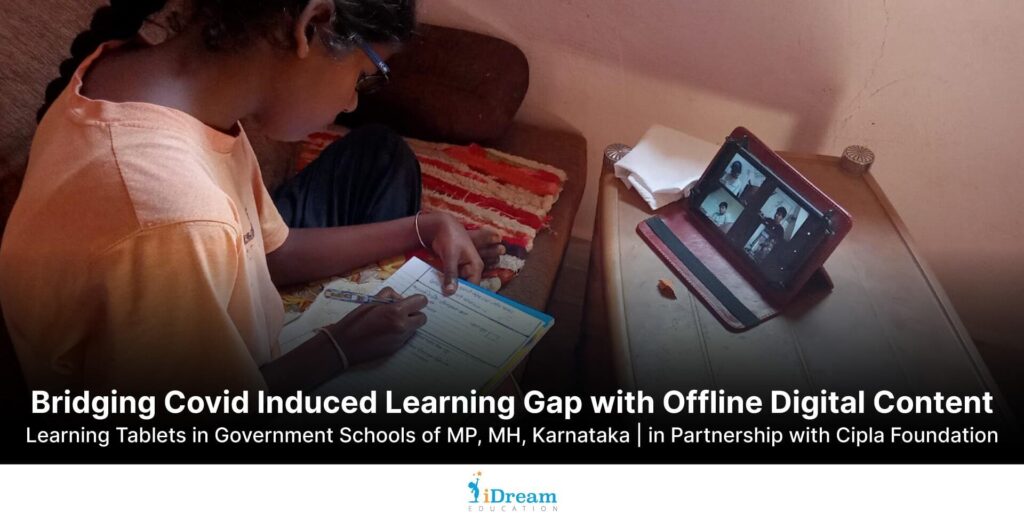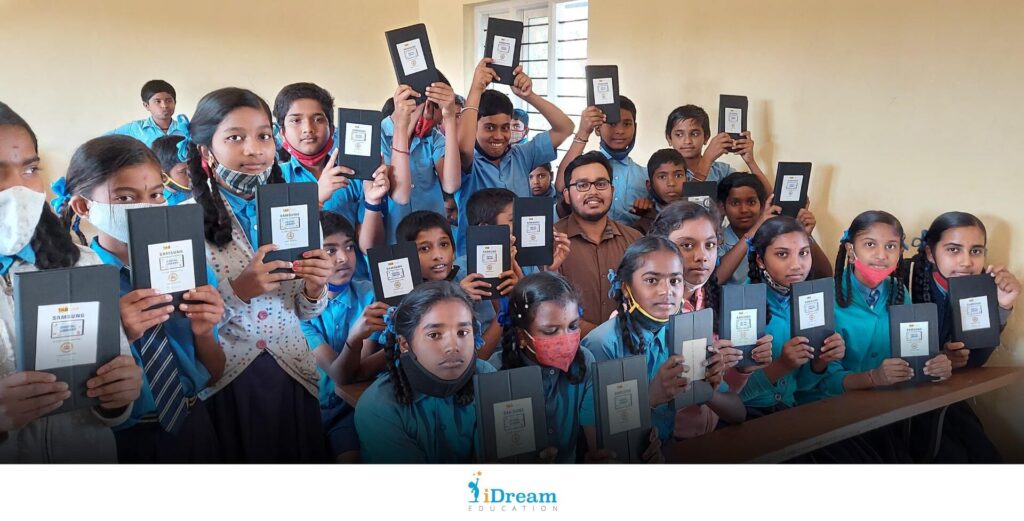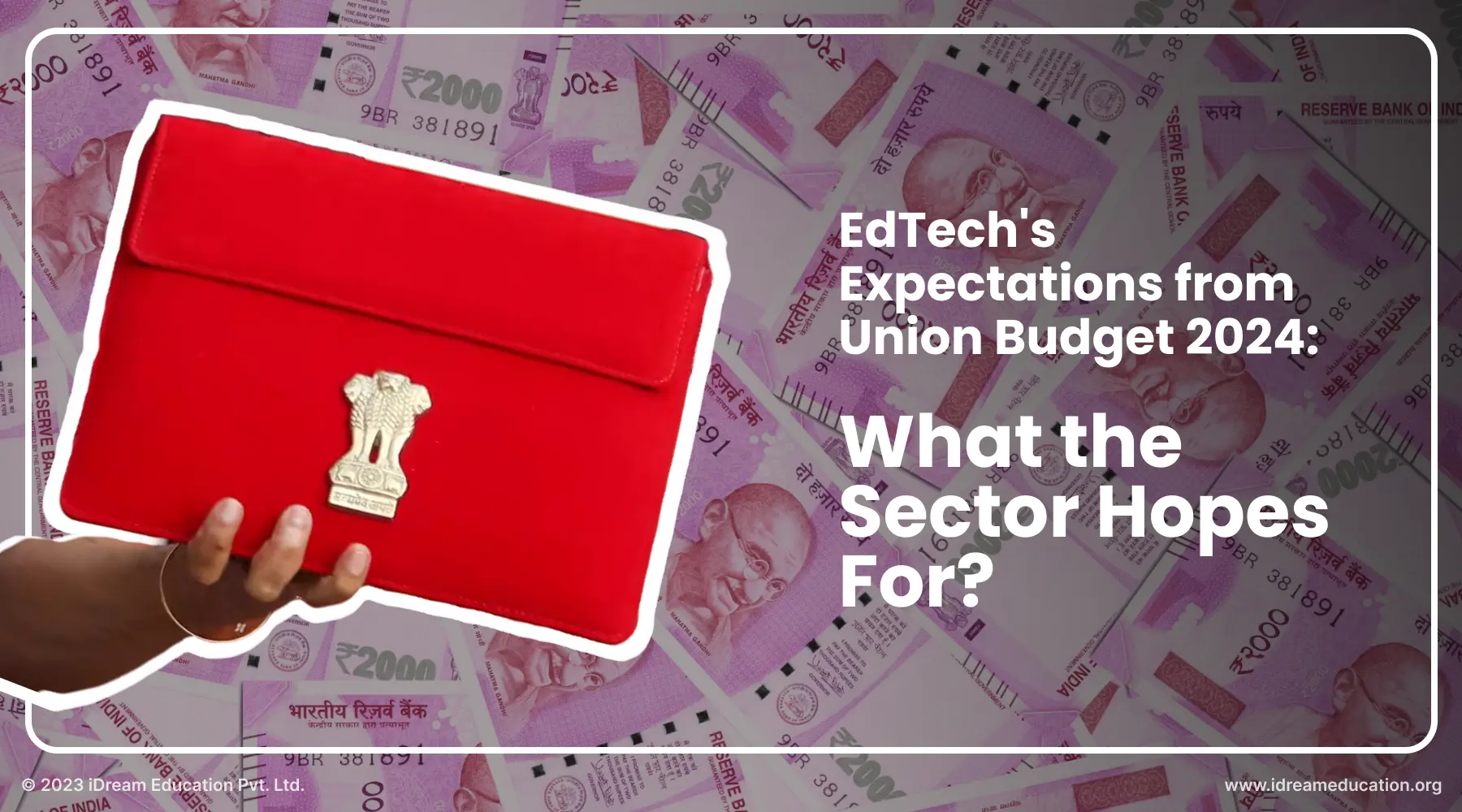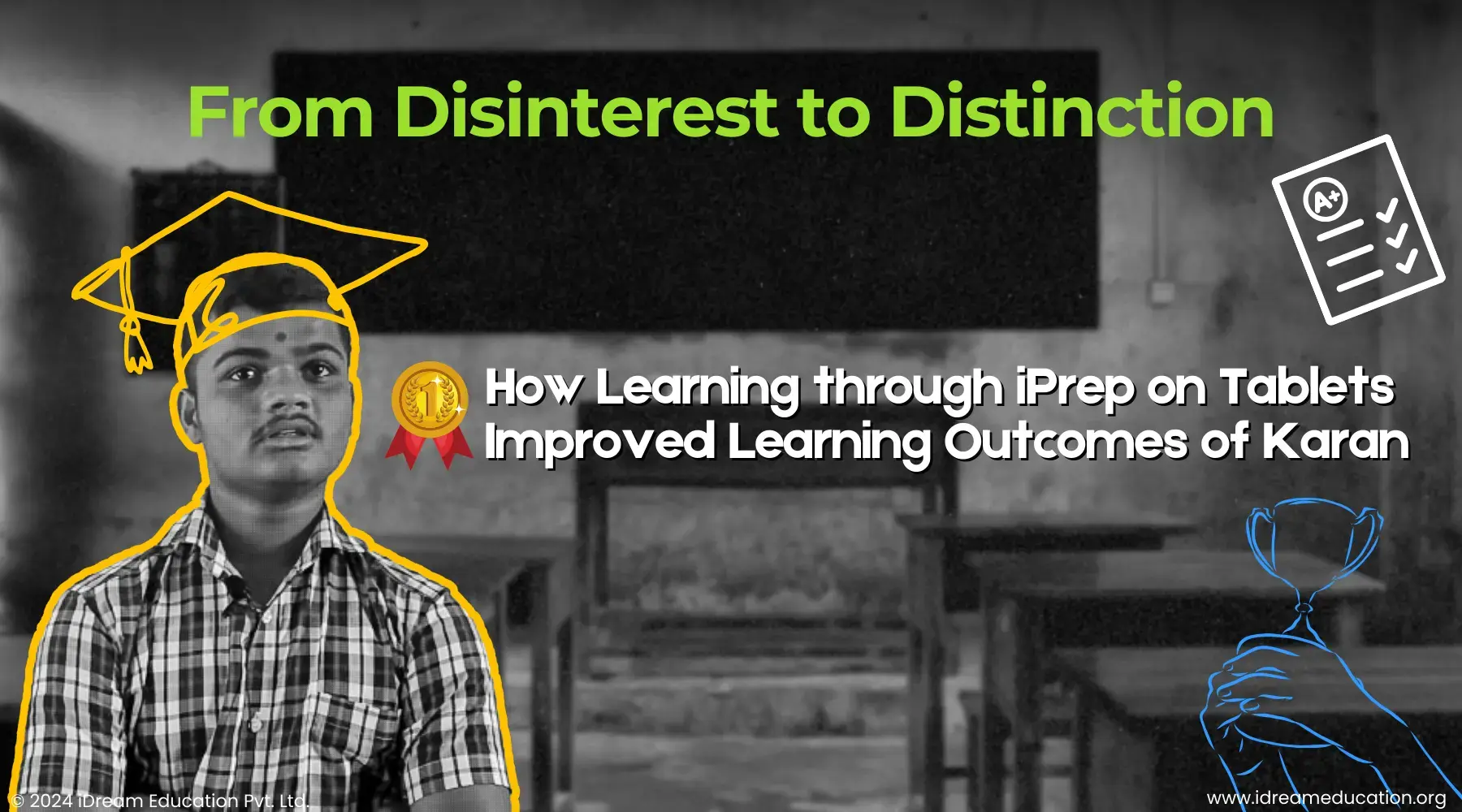Bridging Covid-Induced Learning Gaps with Enjoyable Offline Content on Educational Tablets
Cipla foundation is a social arm of Cipla pharmaceutical, India’s third-largest pharma company. They work to improve people’s lives through skilling, education, health, disaster response, and environmental initiatives. But like everywhere else, the Covid-induced lockdown presented a new challenge in front of their team. As the government announced the lockdown, the government schools where they were working reached out to them and apprised them of a disturbing reality. If not acted upon, the lockdown would lead to a major gap in student’s learning, which they feared could result in dropouts and other long-term implications.
Teachers were keen to connect with their students online and enable them to continue their learning, but they were unable to move ahead.
Two key issues were observed:
- Most students did not have a device of their own
- Those who did could not get access to it during the school time
And with the internet also being a challenge, even though their teachers were trying, many students could not attend online classes and eventually were cut off from all learning activities.
Partnership with iDream Education
Looking at the above challenges, it was felt that there needs to be a way through which students can have their own devices, and can use the internet for online classes, and can get access to local language digital content offline for uninterrupted learning at home.
Cipla Foundation with iDream Education collaborated to create a project under which students of class 10th were selected to receive their personalised educational tablets. These tablets had an SD Card preloaded with curriculum-aligned digital content in student-preferred languages, Marathi, Kannada, and Hindi, along with English medium content. While students of other grades could still have time to make to cover their gap, we assured that students of class 10th have access to the content of class 9th to avoid delay in their learning. Therefore, under this project therefore, it was decided to first support students in class 10th of all schools.
Project Reach
State Covered: Maharashtra, Karnataka, and Madhya Pradesh
Number of Schools reached: 55
Number of students impacted: 6,000+
Project Components
7inch Android tablets with earphones and a book-style protective cover. With every tablet, there was an SD Card preloaded with digital content aligned to the Maharashtra state board, Karnataka state board and Madhya Pradesh state board.
Apart from the content of class 10th, the students were also provided offline access to the content of class 9th to enable them to cover their learning gaps joyfully and in a non-judgemental environment in their homes.
Project Impact
-
Increased time of studying at home
While talking to parents, we understood that apart from learning at school, students hardly spent any time revising or practising at home. But since they received educational tablets, student’s average learning time at home has been around 45 mins to 1 hour for at least 15 to 20 days in a month.
-
Improved Learning Outcomes
In a survey conducted with the students, close to 70% said that because of animated video lessons and offline practice papers, they could improve their understanding of concepts taught by their teachers and have started doing better in their exams and tests. Access to junior class content was also instrumental in helping students cover up their previous learning gaps and hence do well in concepts for Grade 10th
-
Increased awareness of parents
An activity was conducted with the students, in which they were encouraged to read stories with their parents at home. Because of local language content, parents who till then found no means to engage with their kid’s in learning could now understand, engage and contribute. They were seen encouraging their kids to make use of the tablets and look at future opportunities.
-
Increased productivity of teachers
Teachers could now supplement their online teaching with personalised learning by the students at home. They were seen assigning video lessons, books and practice questions on topics they were teaching in class to give them a chance to attempt the same at home. With access to student-wise reports, they were in a much better position to understand how their students were progressing, and using this were able to give individual feedback to them
How did we achieve this impact?
-
Students got access to personal devices
Students were given personalised learning tablets to use at home or anywhere, even while travelling to their native places. Now, they did not have to wait for their parents to give them the device or search for a place that has better internet connectivity. Everything was available at their fingertips whenever they needed
- Bilingual platform and educational digital content
Students had access to a platform they could use in their local language. This means that when they opened their device, all navigation instructions and buttons were visible to them in the language they understand. Regular usage was therefore easy, and they did not require ongoing training. It was effortless for them to navigate and use the learning platform. On top of that, all content was available to them in local languages, the same language in which their teachers were teaching in the classroom and in which they were using their textbooks. There was familiarity with educational tablets that led to a natural adoption and hence regular usage.
-
Curriculum aligned
Each tablet had curriculum-aligned content as per MP, Maharashtra and Karnataka boards. This made teachers very comfortable, where they could easily map their lesson plans with the content available on the devices and could therefore advise students to refer to a specific section on the tablet. Since teachers found utility, they encouraged students to use tablets at home, which, as mentioned earlier, led to a natural adoption and regular usage.
-
Enjoyable learning experience
Learning became enjoyable for students with the availability of content in the form of academic video lessons, practice questions and growth-based content in the form of DIY project videos and a comprehensive digital book library with 1000 books across fiction, non-fiction, and biographies, and so much more. Every time students opened the tablet; they had multiple things they could explore; hence, the excitement never faded.
-
Continuous monitoring
With a reporting dashboard, it was very easy for teachers, teams of Cipla Foundation, and iDream Education to monitor the students’ progress regularly and provide support and guidance where necessary. Repeated training sessions were organised for schools where low usage was observed; subject teachers were guided based on subject-wise reports.
The project solved the key challenges of device accessibility and dependency on the internet. It enabled students of Class 10th in schools supported by Cipla Foundation to continue their learning, be better prepared for their board exams and have increased self-confidence to appear and do well, not just in the exams but in the life ahead.
The project is still continuing, and now, a new set of students are getting benefited from the same devices.
If in case you would like to know more about our digital learning solutions, comment below or write to us at share@idreameducation.org
idreameducation.org








